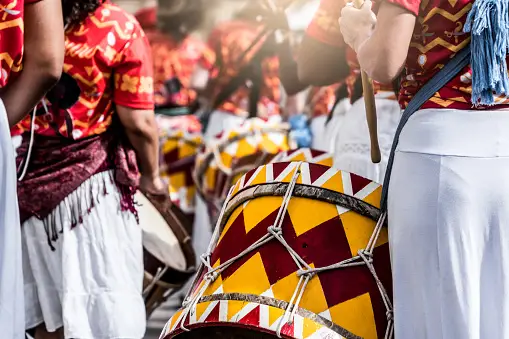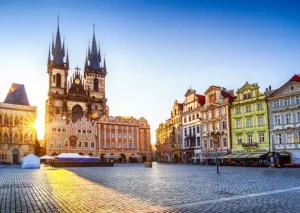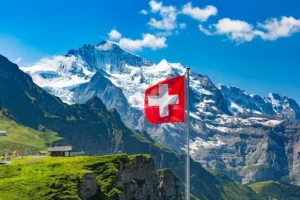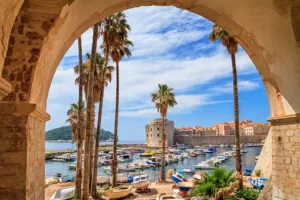Brazilian Culture: A Tapestry of Vibrant Traditions and Diverse Influences

Brazilian Culture is a rich mosaic, a colorful blend of indigenous traditions, Portuguese colonial influence, and the vibrant rhythms of Africa. It’s a culture that dances to the beat of samba and celebrates life with an unyielding spirit of festivity.
Historical Roots and Colonial Influence
The history of Brazil is deeply intertwined with its culture. The Portuguese colonization, which began in the 1500s, brought with it the language, religion, and many customs that still define much of Brazilian society today¹. However, these European traditions were not adopted in isolation. They mixed with the rich tapestry of indigenous cultures and the African influences brought by the slave trade, creating a unique cultural identity.
Language: The Unifying Thread
Portuguese is the lingua franca of Brazil, a legacy of colonial times. Yet, it’s a version distinct from that spoken in Portugal, infused with words and expressions from indigenous and African languages, reflecting the country’s multicultural heritage.
Religion: A Spectrum of Beliefs
Catholicism, brought by the Portuguese, remains the predominant faith, but Brazil’s religious landscape is diverse. African religions like Candomblé and Umbanda have a significant following, and there’s a growing number of Protestants, Spiritists, and others, all contributing to a rich spiritual tapestry.
Carnival: The Epitome of Brazilian Joie de Vivre
The Brazilian Carnival is known worldwide, a festival that encapsulates the nation’s love for music, dance, and celebration. It’s a time when the streets come alive with parades, elaborate costumes, and the pulsating rhythms of samba.
Cuisine: A Melting Pot of Flavors
Brazilian cuisine is as diverse as its culture, with staples like feijoada—a hearty stew of beans and meat—reflecting the blending of indigenous, African, and Portuguese culinary traditions. Each region adds its twist, creating a rich variety of flavors across the country.
Arts and Literature: Expressions of a Nation’s Soul
Brazil’s artistic expressions are as vibrant as its festivals. From the modernist paintings of Tarsila do Amaral to the literary masterpieces of Machado de Assis, Brazilian arts and literature speak volumes about the nation’s complex history and diverse society.
Music and Dance: The Rhythms of a Nation
Music is the heartbeat of Brazilian culture, with genres like samba, bossa nova, and forró telling the stories of the people. Dance is equally important, with traditional forms like capoeira combining martial arts, acrobatics, and music into a captivating display.
Sports: More Than Just a Game
In Brazil, sports, particularly football, are more than just pastimes—they’re a way of life. Icons like Pelé and Neymar have elevated the game to a national passion, uniting people across all walks of life.
Family and Social Values: The Foundation of Society
Family is central to Brazilian life, with extended families often living close together, providing a support network that reflects the collectivist nature of the society. Social class and ethnicity play roles in shaping the social dynamics, but there’s a general sense of camaraderie and warmth that pervades the Brazilian way of life.
Conclusion: A Celebration of Diversity
Brazilian culture is a celebration of diversity, a testament to the country’s ability to blend different influences into a cohesive and vibrant whole. It’s a culture that embraces change while honoring its past, always looking forward with hope and optimism.
This article merely scratches the surface of the vast and intricate world of Brazilian culture. For those who wish to delve deeper, the journey is as rewarding as it is endless, filled with the warmth and vibrancy that only Brazil can offer.








